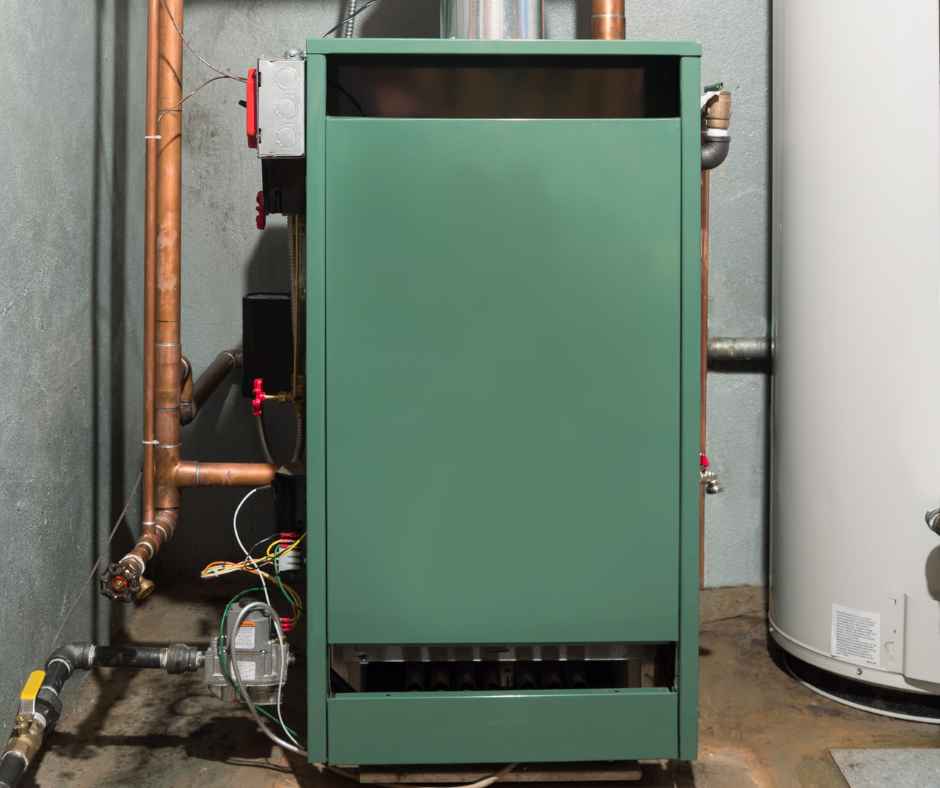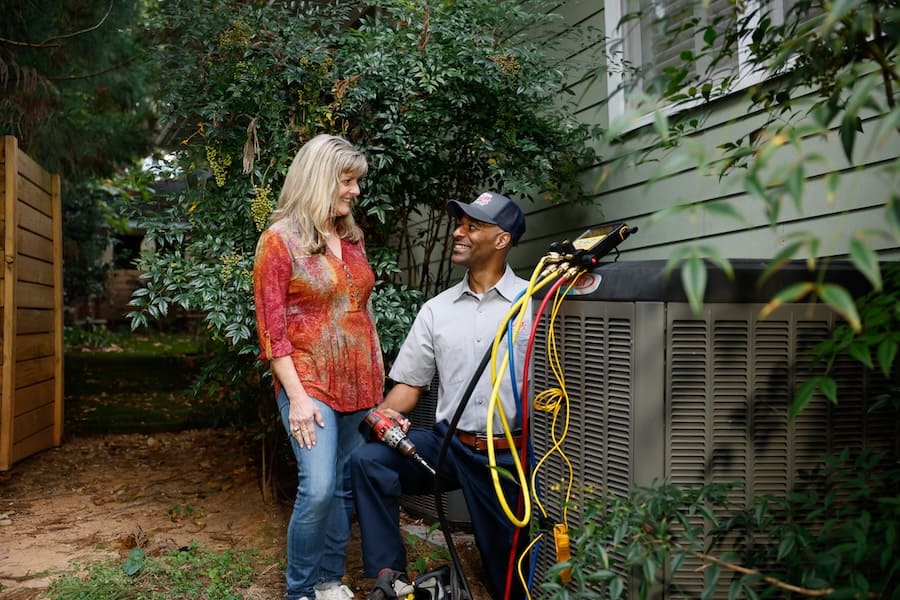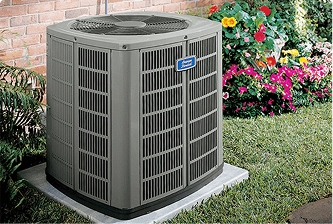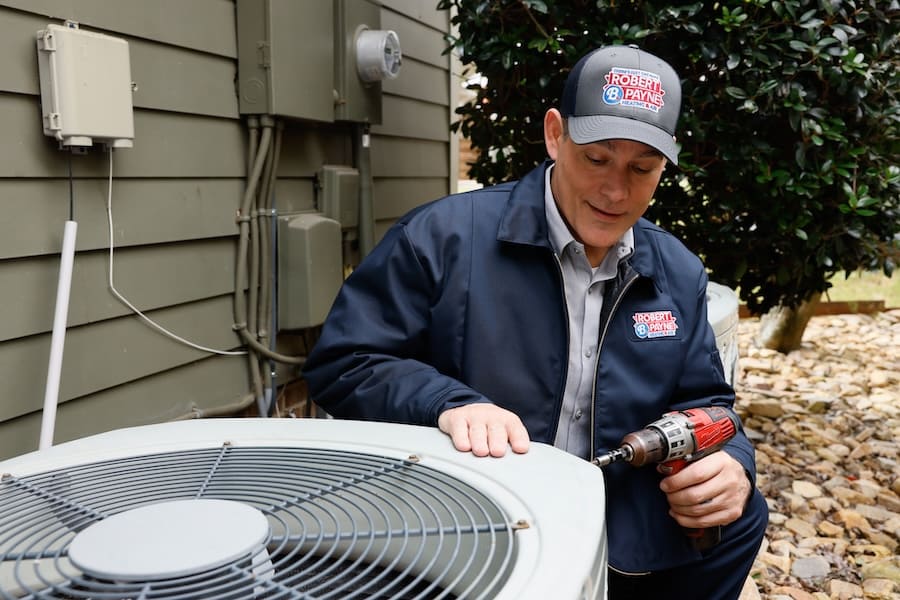When your HVAC system starts making strange sounds, it’s hard not to worry. A sudden bang, whine, or hum can leave you wondering whether it’s a minor issue or the start of a major repair. For homeowners in Fredericksburg, these noises often occur during the busiest heating or cooling months, when your system is working hardest.
The good news is that not every sound means trouble. Many noises are normal and may simply indicate your system cycling on or adjusting to temperature changes. However, some sounds are early warning signs that something inside your heating or cooling system needs attention.
In this blog, we’ll help you learn to recognize common HVAC noises, understand what might be causing them, and know when to call a professional technician.
Understanding Why HVAC Systems Make Noise
Every HVAC system creates some level of sound during operation. The hum of the blower motor, the soft click of relays, and the whoosh of air through the vents are all signs of a functioning unit. Problems begin when these normal noises change in volume, rhythm, or tone.
Over time, components can loosen, motors can wear down, and dust or debris can interfere with moving parts. Seasonal changes in Fredericksburg can also cause expansion and contraction in ducts and metal parts, occasionally leading to rattling or popping sounds.
Here are some of the most common causes of HVAC noise changes:
- Loose hardware: Screws, panels, or brackets can vibrate out of place with regular use.
- Airflow restrictions: Dirty filters, blocked vents, or damaged ductwork can strain the system.
- Electrical wear: Older motors or capacitors can buzz or hum before failing.
- Debris buildup: Leaves, twigs, or dirt in the outdoor unit can cause grinding or rattling.
While some noises can be minor and temporary, others indicate mechanical wear or electrical issues that require professional attention. Learning to recognize the difference helps prevent unnecessary service calls while protecting your system from costly damage.
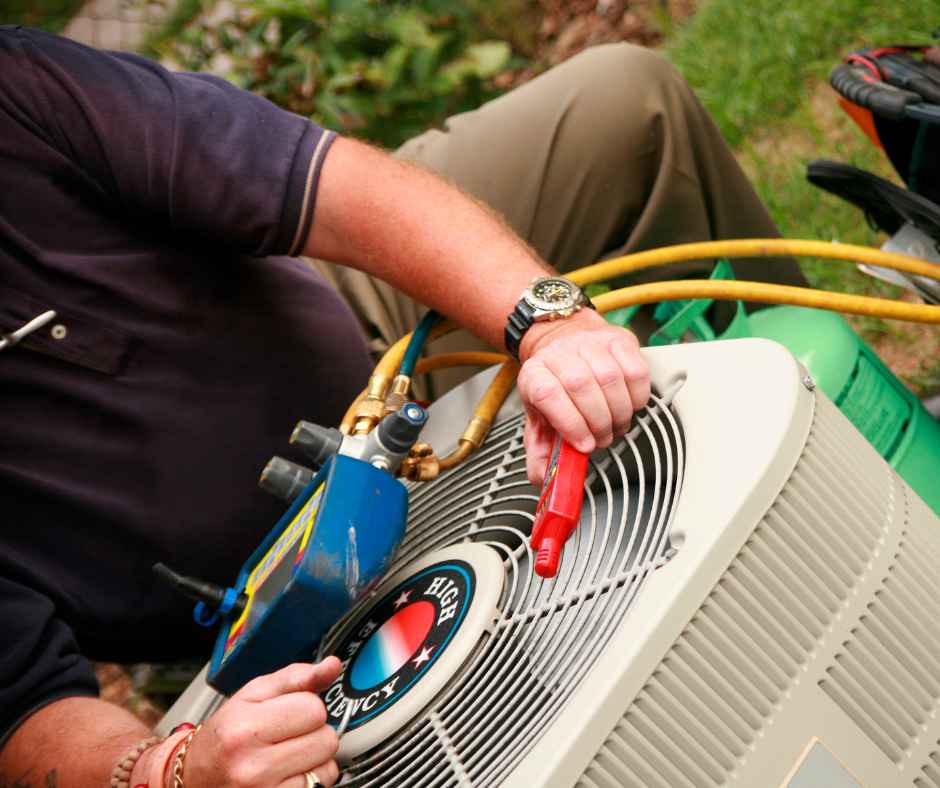
Common HVAC Noises and What They Might Mean
Hearing a new or unusual sound from your HVAC system can be unsettling. The type of noise often reveals what part of the system needs attention. Understanding what these sounds mean can help you decide whether to monitor the issue or call a professional technician.
Banging or Clanking
Loud banging or metal-on-metal clanking can indicate loose or broken components inside the system. Common causes include a disconnected blower fan, broken compressor parts, or debris caught in the fan blades. If you hear this noise repeatedly, it is best to shut the system off and schedule a service call. Continuing to run the unit may cause further damage.
Whistling or Hissing
A whistling sound often points to an airflow problem. It may come from a clogged air filter, a closed vent, or a small leak in the ductwork. Hissing could also indicate a refrigerant leak, especially if it comes from the indoor air handler or outdoor condenser. While a clogged filter can be replaced at home, refrigerant issues should always be handled by a licensed HVAC technician.
Buzzing or Humming
A steady buzzing or humming noise can originate from electrical components such as the capacitor, contactor, or transformer. It may also be caused by loose wiring or debris touching the fan blades. Because electrical issues can pose safety risks, it is important to have a professional inspect the system to prevent further damage or short circuits.
Rattling or Vibrating
Rattling often signals something loose, such as an access panel, screw, or section of ductwork. In outdoor units, leaves, twigs, or small stones can get trapped in the fan housing. Check for debris and tighten any visible screws if you can do so safely. If the rattling continues, the issue may be inside the blower or motor assembly.
Screeching or Squealing
High-pitched squealing or screeching is typically caused by worn motor bearings or a slipping fan belt. These issues can worsen quickly if ignored, leading to complete motor failure. Shutting off the system and scheduling a professional repair can prevent further wear and protect the system’s moving parts.
Recognizing these common noises can help you communicate clearly with your technician and take appropriate action before small issues become expensive repairs.
When the Noise Means You Should Call a Technician
While some HVAC noises are minor or temporary, others can signal mechanical or electrical problems that need professional attention. Knowing when to call a technician can help you avoid system failure, higher repair costs, and energy waste.
Call for Immediate Service If You Notice:
- Loud banging or clanking: Indicates loose or broken components that could damage other parts of the system if left running.
- Hissing from the indoor or outdoor unit: Could mean a refrigerant leak, which reduces cooling performance and poses environmental risks.
- Electrical buzzing or burning smells: Suggests a wiring or motor issue that could lead to a short circuit or fire hazard.
- Persistent squealing or screeching: Often linked to worn belts or bearings that may cause the motor to seize.
- Grinding or metal-on-metal sounds: Typically caused by worn bearings or debris in the blower motor, requiring immediate inspection.
Monitor, But Do Not Ignore, These Sounds:
- Light rattling or vibration: May be due to loose panels or small debris; check for obvious causes before calling.
- Whistling from vents: Could be a clogged filter or partially closed register; cleaning or replacement may resolve it.
Why Acting Quickly Matters
Unusual sounds are often the first sign of a developing problem. Ignoring them allows wear and strain to spread through the system, shortening the lifespan of motors, fans, and compressors. Early repairs can often prevent more serious issues, improve efficiency, and keep your home comfortable during Fredericksburg’s most extreme weather.
If you are ever unsure whether a sound is serious, it is always safest to have the system inspected. A professional technician from Robert B. Payne can quickly identify the cause and recommend the right repair before the problem worsens.
How Homeowners Can Safely Investigate Noises
If your HVAC system begins making an unfamiliar noise, there are a few safe steps you can take before calling a technician. These simple checks can help you identify minor problems or rule out easy fixes. Always remember that if a task involves wiring, refrigerant, or sealed components, it should be left to a professional.
Safe Steps for Checking HVAC Noises
- Turn off the system: Always switch off the unit at the thermostat or breaker before inspecting. This prevents accidental injury and allows you to listen for changes when it restarts.
- Check the air filter: A clogged or dirty filter is one of the most common causes of whistling or hissing sounds. Replace it if it appears gray, dusty, or covered with debris.
- Inspect outdoor units for debris: Clear away leaves, twigs, or grass that could be obstructing the condenser fan. Maintain at least two feet of clearance around the unit.
- Tighten visible panels and screws: Loose access panels or screws can cause rattling or vibration. Use a screwdriver to secure them if accessible.
- Observe when the noise occurs: Note whether the sound happens during startup, shutdown, or continuous operation. Sharing this information with your technician can speed up diagnosis.
- Avoid electrical areas: Do not attempt to remove covers, handle wiring, or open control panels. These areas carry high voltage and require professional tools and training.
When to Stop Troubleshooting
If the noise persists after these checks or seems to worsen, stop troubleshooting and call a licensed HVAC technician. Continuing to run the system could cause further damage or mask a more serious problem.
Even with basic maintenance, HVAC systems benefit from professional inspections at least once per year. Regular tune-ups from Robert B. Payne help prevent noise-related issues and keep your heating and cooling equipment running efficiently throughout the Fredericksburg seasons.
The Value of Professional HVAC Diagnosis in Fredericksburg
While homeowners can perform a few safe checks, a professional technician provides the in-depth expertise needed to fully diagnose HVAC problems. Many noises that seem minor on the surface can signal deeper mechanical or electrical issues that require specialized tools and training to detect.
Professional technicians from Robert B. Payne use advanced diagnostic equipment to pinpoint the source of unusual noises and identify hidden performance problems. By inspecting components such as blower motors, compressors, and ductwork, they can uncover issues that a visual check might miss.
Benefits of a Professional HVAC Diagnosis
- Accurate identification of problems: Technicians use sound and vibration analysis to determine whether noises come from mechanical wear, electrical faults, or airflow obstructions.
- Prevention of further damage: Early detection of issues like worn bearings or loose mounts prevents more expensive repairs later.
- Improved system efficiency: A properly tuned system runs more quietly, consumes less energy, and delivers more consistent comfort.
- Extended equipment lifespan: Routine service keeps moving parts lubricated and components balanced, reducing strain over time.
- Trusted local expertise: With decades of experience serving Fredericksburg and the surrounding area, Robert B. Payne technicians understand how regional climate and seasonal shifts affect HVAC systems.
A professional inspection not only solves the immediate noise problem but also ensures that your system continues running efficiently and safely. Regular maintenance visits can also catch issues before they cause noticeable sounds, helping homeowners enjoy quieter, more reliable comfort year-round.
Call the Fredericksburg HVAC Experts at Robert B. Payne
Noisy HVAC systems can range from simple maintenance needs to signs of serious mechanical trouble. While some sounds can be safely checked at home, others require professional diagnosis to prevent costly damage and keep your home comfortable.
If you have noticed banging, humming, or any other unusual noise coming from your system, don’t wait for the problem to get worse. The experienced technicians at Robert B. Payne provide comprehensive HVAC inspection, repair, and maintenance services for homeowners throughout Fredericksburg and the surrounding area.
Our team takes the time to identify the cause of the noise, explain your options, and recommend lasting solutions that protect both your comfort and your investment.
Contact Robert B. Payne today to schedule a service appointment or routine inspection. From quick diagnostics to complete system care, you can count on our expertise to keep your home running quietly and efficiently all year long.
Frequently Asked Questions About HVAC Noises and Repairs
Is it normal for my HVAC system to make some noise?
Yes. A gentle hum or the sound of air moving through vents is completely normal. However, any sudden, loud, or irregular sounds such as banging, squealing, or buzzing usually signal a developing issue that should be checked by a technician.
Can I lubricate HVAC components myself to stop squealing?
It’s best not to. Many modern HVAC systems are sealed and require specific lubricants and procedures. Attempting to lubricate parts without the right training could cause more harm than good. A certified technician can safely perform this service during routine maintenance.
What if my HVAC only makes noise when starting up?
A brief noise at startup can be normal as fans and compressors engage. However, repeated banging, grinding, or squealing at startup may indicate worn parts or an electrical problem that needs professional attention.
How often should I schedule maintenance to prevent noisy operation?
Most Fredericksburg homeowners should schedule professional HVAC maintenance twice a year: once in spring before cooling season and again in fall before heating season. Regular tune-ups reduce noise, improve efficiency, and extend equipment life.
Will replacing my HVAC system eliminate noise completely?
A new system will usually run much quieter, especially if it replaces an older or oversized unit. However, some operational noise is normal. Proper installation, duct design, and maintenance all play a major role in keeping a new system quiet.



